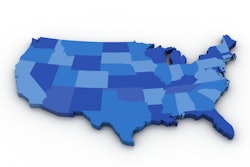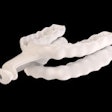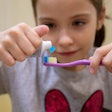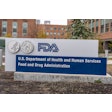
In 2021 and 2022, several states in the U.S. and the District of Columbia enacted legislative and regulatory changes affecting dental assistants, according to the Dental Assisting National Board's (DANB) "State of the States" report.
State changes include expanding the functions of dental assistants, updating supervision levels, and more, according to the report that outlines changes made between April and August 2022.
Individual changes by location
District of Columbia
Effective December 2021, health professionals, including dental assistants, in the district must receive COVID-19 vaccinations. The rule delineates grounds for exemptions and defines disciplinary and enforcement actions for noncompliance. However, a subsequent emergency rule mandating boosters for these professionals was rescinded.
Hawaii
Effective June 2022, dental assistants were able to perform limited essential duties under the direction of a licensed dental hygienist and under the general supervision of a dentist in public health settings. Duties include the following:
- Taking intraoral and extraoral photographs
- Recording or charting clinical findings as directed by a licensed dental hygienist
- Exposing, processing, mounting, and labeling x-rays
- Measuring and recording vital signs
- Assisting a licensed dental hygienist during a dental or dental hygiene procedure
Illinois
Effective May 2022, the performance of coronal scaling by dental assistants was modified. Dental assistants can perform coronal scaling on patients ages 12 and up. Previously, the age was 17. Other changes included increasing the economic hardship threshold for patients from 200% to 300% of the poverty level, as well as adjusting training requirements.
Maryland
In May 2022, Maryland signed a law that created a new expanded function dental assistant (EFDA) tier on the dental assisting career ladder. Currently, the Maryland State Board of Dental Examiners is developing rules to implement the law, which allows dental assistants with EFDA certifications to assist in orthodontic procedures authorized by the board, place dental sealants, perform coronal polishing, apply silver diamine fluoride, and monitor a patient during nitrous oxide administration. To earn EFDA status, dental assistants must complete board-approved education, hold appropriate DANB certification, and pass board-approved exams.
Additionally, certain applicants, including dental radiation technologists, seeking renewal of licenses or certificates issued by a health occupations board must complete a state-approved implicit bias training program. The law became effective April 2022 for those seeking initial licenses or first certificates.
New York
As of 2021, the New York State Board for Dentistry published guidelines stating that a dental assistant may not perform bleaching services under the personal supervision of a dentist.
North Dakota
Effective July 2022, a new rule modified requirements for registration as a qualified dental assistant, including earning DANB's National Entry Level Dental Assistant certification for three of four pathways.
Oregon
A new dental therapist law, which includes provisions for the supervision of dental assistants and EFDA by dental therapists, went into effect in July 2022.
Texas
As of June 2022, a new teledentistry law requires dental assistants to be registered in Texas if they are delivering telehealth services to patients living in the state. An assistant's name, Texas license number, credentials, and qualifications must be publicly displayed and provided in writing to the patient, the law states.
Virginia
As of June 2022, guidance was issued clarifying that dentists may delegate indirect pulp capping to a dental assistant II.
Wisconsin
In April 2022, the state enacted a law defining and providing for the certification of expanded function dental auxiliaries who can place and finish restorative material after a dentist applies sealants, performs coronal polishing or impressions, removes cement from crowns, or adjusts dentures. Dental auxiliaries can also apply dental topical agents under a clinician's supervision.
For expanded function auxiliaries to receive state certification, they must have current proficiency in CPR, including using an automatic external defibrillator, and completed an accredited instructional program. Applicants must have 2,000 hours of work experience practicing as a dental assistant or have completed 1,000 hours of dental assisting practice and hold current a DANB-certified dental assistant certification. To implement the law, the Wisconsin Dentistry Examining Board will initiate rule-making.
Wyoming
A rule was adopted changing dental assistants' scope of practice. Under the rule, which became effective January 2022, dental assistants can apply silver diamine fluoride under indirect supervision, but they are prohibited from using handpieces except for low-speed types for coronal polishing. Furthermore, the rule clarifies the qualifications for performing radiography and sealants and added a "permit by credential" pathway for assistants qualified in radiography in other states.




















